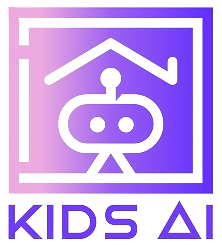
Artificial Intelligence (AI) has been making waves in various fields, from healthcare to finance, but its potential impact on childhood is equally remarkable. AI technology is rapidly transforming the way children learn, play, and interact, unlocking endless possibilities for their development.
One of the key areas where AI is revolutionizing childhood is education. Traditional classroom settings often struggle to cater to the individual needs and learning styles of every student, resulting in gaps in knowledge and uneven progress. However, AI-powered learning platforms can adapt to each child’s unique abilities, offering personalized instruction and enabling children to learn at their own pace.
With AI, educational apps and platforms can provide real-time feedback, analyze patterns of learning, and tailor lessons to a child’s specific strengths and weaknesses. This personalized approach not only enhances academic performance but also boosts confidence and motivation, creating a positive learning experience.
Moreover, AI can enable immersive learning experiences through virtual reality (VR) and augmented reality (AR). These technologies create interactive, engaging environments that enhance understanding and retention of concepts. For example, AI-powered VR simulations can transport children to historical events, scientific experiments, or even imaginary worlds, making learning more fun and impactful.
AI is also redefining playtime for kids. Smart toys embedded with AI technology can interact with children, understand their emotions, and adapt their responses accordingly. These toys can engage children in educational games, storytelling, and problem-solving activities, fostering their creativity, critical thinking, and social skills.
Additionally, AI chatbots provide a new dimension of companionship for children. They can engage in conversations, answer questions, and even offer emotional support. These AI companions can assist children in practicing language, improving social skills, and serving as a trusted confidant when needed.
Not only is AI transforming children’s learning and play experiences, but it also has potential implications in healthcare. Medical diagnosis and treatment often involve complex procedures and lengthy consultations. AI applications, such as symptom analyzers and diagnostic tools, can streamline the process and provide accurate suggestions for pediatricians and parents. This not only saves time but can also help identify potential health issues early on, leading to better outcomes for children.
Despite the numerous benefits AI brings to childhood, there are also concerns regarding privacy and ethics. Data privacy and security should be a top priority, ensuring that children’s personal information is protected. Designing AI systems with child safety in mind is crucial to prevent potential harm or inappropriate content.
Moreover, ensuring equitable access to AI technologies is essential. Not all children have equal opportunities to benefit from AI, and efforts should be made to bridge the digital divide. Additionally, AI algorithms must be regularly audited and improved to ensure fairness, mitigating biases that could result in unequal treatment or discrimination against certain children.
In conclusion, AI has the potential to unlock new opportunities and transform childhood experiences. From personalized education and immersive learning to interactive play and enhanced healthcare, AI is reshaping the way children grow, learn, and thrive. While challenges exist, deploying AI thoughtfully and ethically will help unlock its full potential and benefit every child, regardless of their background or circumstances.



